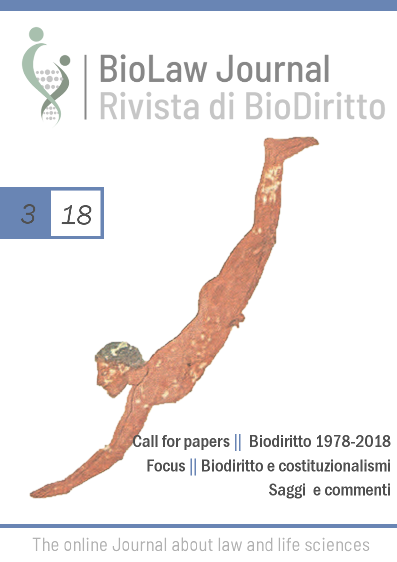Il consenso informato come strumento per l’implementazione etica dei test genetici non invasivi per la diagnosi prenatale
DOI:
https://doi.org/10.15168/2284-4503-338Parole chiave:
Non-invasive prenatal testing, informed choice, disability, informational privacy, social justiceAbstract
The discovery of the presence in the maternal bloodstream of cell fetal free DNA (cffDNA) has favored the introduction of a non-invasive prenatal genetic testing (NIPT) that provides reliable molecular or chromosomal information about fetal health, without risks for pregnancy. The high diagnostic potential of NIPT, as alternative technology to the traditional methods of prenatal diagnosis, has made the choices related to prenatal investigation techniques increasingly complex. The greater availability of cffDNA testing raises the need for patients to receive adequate information about the pros and cons of all available tests, to avoid an automatic and uncritical uptake of NIPT and to make the test an option that a patient can consciously accept or refuse. From a bioethical point of view, there are, on a general level, objections to all the prenatal diagnosis methods, whose mere existence is considered an index of social prejudice towards disability. In particular, NIPT provides so much information that it entails legal issues about the need for "informational privacy" of the unborn child regarding its future "right not to know", and ethical issues as well, including the risk for the test to trigger genetic determinism. These topics need to be addressed in order to examine the social justice issues related to the use, or not, of public resources for the provision of NIPT in terms of health policy priorities.





